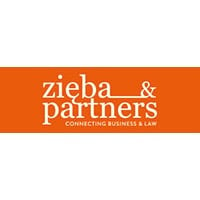

General counsel | Raben Ukraine




Iryna Kravtsova
General counsel | Raben Ukraine
Raben Ukraine conducted a major recent change in corporate structure. An executive body, represented solely by the director, was changed to the collegial body – the board of directors. Due to this change, fundamental corporate documents had to be modified and registered within Ukrainian state authorities. In addition, inner procedures had to be updated accordingly. New processes and rules were communicated during inner round tables to Raben Ukraine management and employees.
I joined Raben Ukraine as general counsel in January 2019. Within 10 months of my work, legal function at Raben Ukraine became a complete and trusted business advisory that supports business units in all matters. Firstly, basic documents were implemented that help business units in day-to-day life. For example, new standard agreements were elaborated that contain not only relevant business provisions but also Raben Group norms, anticorruption and ethical clauses that reflect Raben Ukraine position on providing the best quality service within high level ethical standards. I overviewed the contract validation and signing process by elaborating contract signing procedure that simplifies and organises contractual signing processes in the Company. Next step is transformation of the paper contact achieve into e-achieve that prevents risk of contracts loss and decreases employee’s time consumption on finding a document. Overall, an in-house legal culture has been built in Raben Ukraine.
Work in a large international Group always drives you not only to comply with set diversity programmes and inclusion strategies but also to contribute to them. In Raben Ukraine there are employees of different gender, age, regions, having different education grounds, experiences and skills. That is why I elaborate legal studies that cover not only presentation of business rules but also those that relate to situations from private life. In this way, I would like to upgrade legal knowledge of our employees, giving them legal tips on how to protect their rights and interests.
It’s most definitely that my advice would be to do with passion your work or not to do it at all and choose some other occupation. You cannot succeed in your profession if you do not have inner passion to it, if you are not excited about the projects and business tasks. Besides, nowadays a lawyer should not stop learning different sciences, like finance, marketing, project management and even IT. Once he stops upgrading his knowledge and skills, he is out of the market.
There are some differences in the in-house legal function and private practice. Although these are not pros and cons as every lawyer chooses what is better for him/her, for the character and way of life. For example, the work and life balance is totally different, as in-house lawyer has a more balanced life and work regime and external advisor has to be available for the client 24/7. A private practitioner works among lawyers and in-house lawyer has to learn “business language” as his colleagues are people with business background. An external advisor specialises on a certain field of law, while in-house deals with different tasks that relate to various fields of law.
FOCUS ON… DIGITAL
In the era of digitalisation in-house lawyers should have knowledge of IT and understand the digital world. Digital solutions can optimise work of the in-house lawyer by providing tools for business units through which they can obtain necessary documents or find relative information without contacting the lawyer. In Raben Ukraine an intranet page was launched where employees can find standard contracts, inner procedures and forms. The next step in legal digitalisation is making e-achieve of the signed contractual documents and contract validation in electronic way.
Probably no one will argue that the strategy is fundamental in making a decision. The strategy determines the direction of development and the goals of the company and is based on the values of the company. In-house lawyer should understand, comply and be a part of strategy formation. For this, he should have strategic thinking that should lay not only in the field of building legal function in the company but as well in elaborating ways on how to protect and preserve legal, ethical and financial integrity of the company and keep its reputation at the highest level.
Modern corporate legal function should operate inside the company as a business unit. It should provide legal services as of the best quality and on time, use business data and analytics for making grounded decisions and securing the best results for the company. That is why operational management is one more skill that in-house lawyer is required to have nowadays.
While hiring an in-house lawyer, the employer is looking for grounded legal knowledge, analytical thinking and personal qualities that show whether the candidate will manage to become an integral part of the company’s environment. But as well, the company is looking for someone who wants to develop himself and completely knows fields of his personal improvement. In this way, the company at the very beginning understands whether it can satisfy the candidate’s needs and take the decision whether this candidate should be hired. If the company takes the positive decision and hires the candidate, it already has employee’s development plan that can be modified if management finds that other skills should be improved as well.
The requirements to in-house lawyer’s skills are the same all over the world, however in Ukraine due to dynamic changes in legislation and still existing bureaucratic processes, in-house lawyers should analyse situation and foresee further steps for short and long-term future, taking not only legal but business risks while making decisions. It happens sometimes that Ukrainian in-house lawyers analysing all possible risks, should accept the one that is least risky for the company.
Notwithstanding how professional legal function in the company is, eventually it requires assistance of external adviser. While choosing the law firm to cooperate with, in-house sets the following criteria: Quality of services and professional skills, timely legal feedback and 24/7 availability, fair fees and transparent billing as well as compliance with business ethical rules.